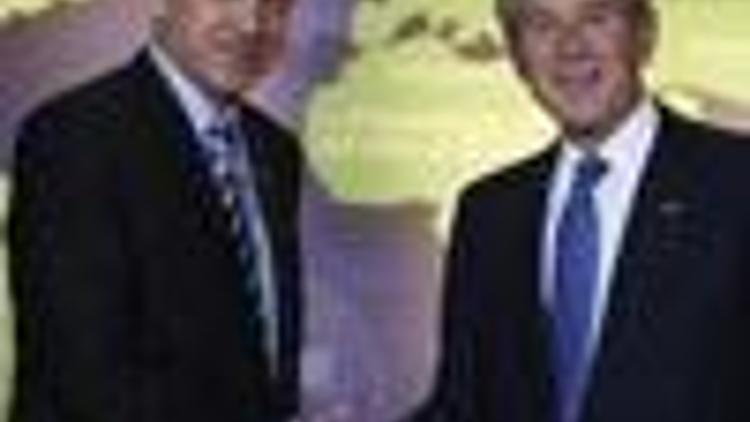Turkey, IMF deal nears
Güncelleme Tarihi:

WASHINGTON - Turkey and the International Monetary Fund are close to reaching a deal. However, prior to signing any deals, there still are some outstanding differences that need to be resolved, says Turkish Prime Minister Recep Tayyip Erdoğan.
Turkey and the International Monetary Fund, or IMF, are close to reaching a fresh deal, but the two sides first need to resolve some disagreements, Prime Minister Recep Tayyip Erdoğan and the Fund's Managing Director Dominique Strauss-Kahn said separately late Saturday.
"We are at the closest point to a solution," Erdoğan told Turkish reporters after the summit meeting here of the Group of 20 countries. "I'm confident that rather rapidly it will be possible to reach a deal, and this is ... needed to stabilize the situation in Turkey," Strauss-Kahn said after the summit. Erdoğan and Strauss-Kahn met at the IMF building in Washington Friday, and the prime minister said their teams had additional talks Saturday.
"The IMF is an institution actually created to give such support at such times. A backing that might come from here [the IMF] would be a [good] argument especially during this transition process in our country," Erdoğan said.
"We still have some disagreement on the size of the adjustment and the consequences of the adjustment needed by the Turkish economy," as well as the size of the loan, Strauss-Kahn noted.
Erdoğan said Friday the IMF urges Turkey to curb 2009 growth target to 2 percent, to stop investments and cut local administrations' income. "I can't do that. We are a developing country," he said.
Erdoğan’s complaints
He said in his speech at the Brookings Institution that if those issues were resolved, then Turkey would consider working with the IMF. Asked Saturday if such complaints remained in place, Erdoğan said "yes" but added that he believed there were improvements.
Strauss-Kahn said Turkey, had been badly affected by the drying up of capital inflows as a result of the global credit crisis. "The drying up of capital inflows has a lot of different results, especially on those countries that were attracting a lot of investment. We need to help them to get out of this bad situation. That's the core discussion we had," he said.
With a huge current account deficit, Turkey has seen a sharply depreciating currency.
Turkey completed in May a three-year stand-by arrangement supported by more than $10 billion in IMF loans, and the two sides have been discussing a fresh deal. However, the government has been reluctant for a new deal mainly because of planned local elections in March. It does not want to face the IMF's spending restrictions before the polls. The IMF has warned the authorities against increased spending for municipalities as Turkey's financial markets have been hit severely by the global crisis. Meanwhile, the markets and Turkey's business community push for a new program with the IMF, believing that the fund as a strong anchor would help weather the crisis more easily.
Obama representatives
In a separate development, Erdoğan met with U.S. president-elect Barack Obama's representatives late Saturday to discuss U.S.-Turkish relations. Former secretary of state Madeleine Albright, former Republican Congressman Jim Leach and Phil Gordon, a foreign policy adviser to Obama, attended the meeting as the president-elect's team. Both sides declined to comment on the talks' nature.
Relations with
Prime Minister Recep Tayyip Erdoğan and chief of the IMF, Dominique Strauss-Kahn, agreed to be in close contact and cooperation, according to an IMF statement yesterday. World Bank officials, for their part, who also met the Turkish delegation, noted that they appreciated the development of
The crisis is the most severe since the one in 1929, Erdoğan said. "Global crisis cannot be overcome only by efforts from individual countries, it requires concerted action," he said. "

